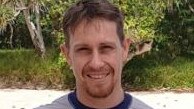Daniel Robert Heath faces Biloela court after police find drug-growing set-up in his bedroom
A single father of three children has faced court after police found a drug-growing set-up in his bedroom. Here’s the tragic story behind the dad’s poor choice.

Police & Courts
Don't miss out on the headlines from Police & Courts. Followed categories will be added to My News.
A Central Queensland mine worker and single father has faced court after police found a drug-growing set-up in his bedroom at home.
Daniel Robert Heath, 37, pleaded guilty in Biloela Magistrates Court on October 12 to producing cannabis.
The court heard that on August 4, police executed a search warrant at Heath’s Biloela residence.
Police Prosecutor Kelvin Boyd said that on Heath’s bedroom floor, police found a small, dead cannabis plant in a pot.
Mr Boyd said that in a locked cupboard, officers found an indoor grow tent which contained LED lamps, an electronic timer, a duct system which had been designed to filter air-conditioning, and medium-sized cannabis plants.
The prosecutor said nearby, officers found liquid fertiliser and garden chemicals.
Mr Boyd said during the search, police also found cannabis buds which had been medically prescribed to Heath.
“During a search of the remainder of the dwelling, police located approximately 32g of cannabis throughout the dwelling which did not appear to be legally dispensed,” Mr Boyd said.
Magistrate Philippa Beckinsale asked the prosecution if Heath had only been charged with producing a dangerous drug and not possession also, to which Mr Boyd confirmed was the case.
Mr Boyd said Heath told police he had been prescribed both medicinal cannabis and CBD oil, but because of the cost of those being unaffordable, he purchased equipment to grow his own cannabis in his bedroom to “bolster” what he was legally prescribed.
“(Heath) confirmed he understood that growing his own cannabis was not lawful,” Mr Boyd said.
Solicitor Richard Parks said Heath was a single father of three who worked in the mines and there was no commerciality to his offending.
Mr Parks confirmed that Heath had produced the cannabis to supplement the cost of what he was paying for the medicinally-prescribed drug.
Mr Parks said that five or six years ago, Heath was convicted of producing cannabis oil, and the background to that was Heath’s wife had a terminal brain tumour and was suffering agonising pain each night.
“The only thing that relieved that pain was cannabis oil,” Mr Parks said.
Ms Beckinsale noted for that previous offence, Heath had no conviction recorded.
Mr Parks said the death of Heath’s wife had left his mental state “very fragile” and hence he “stupidly” decided to grow his own cannabis.
“He is very remorseful for what he’s done - he’s asked me to assure the court it will not happen again,” Mr Parks said.
“He does work at the mines - they test it (for drugs) every day... he hasn’t been affected by it at work at all.
“So he’s been very responsible in his use of it, Your Honour.”
Ms Beckinsale placed Heath on a 12-month good behaviour order with a $1000 recognisance.
No conviction was recorded.





